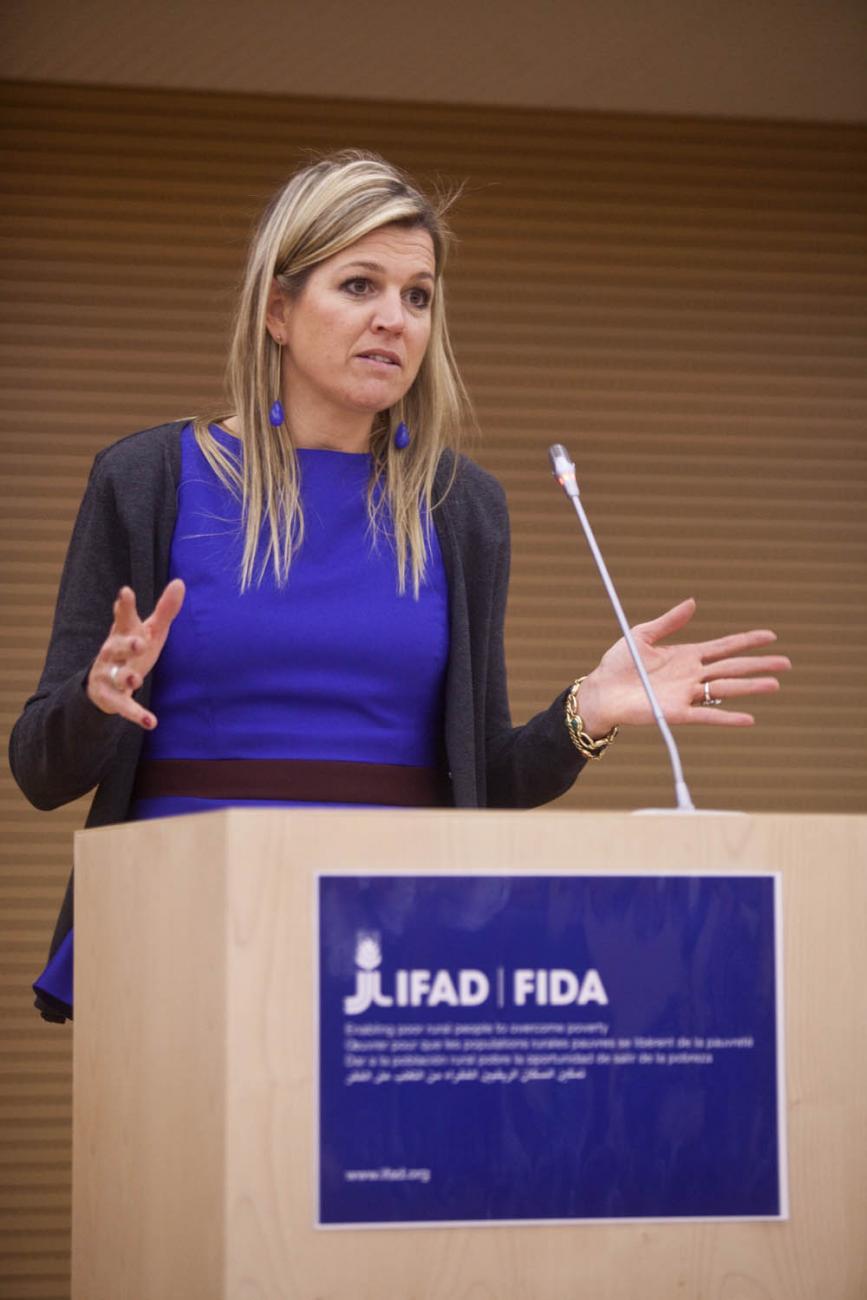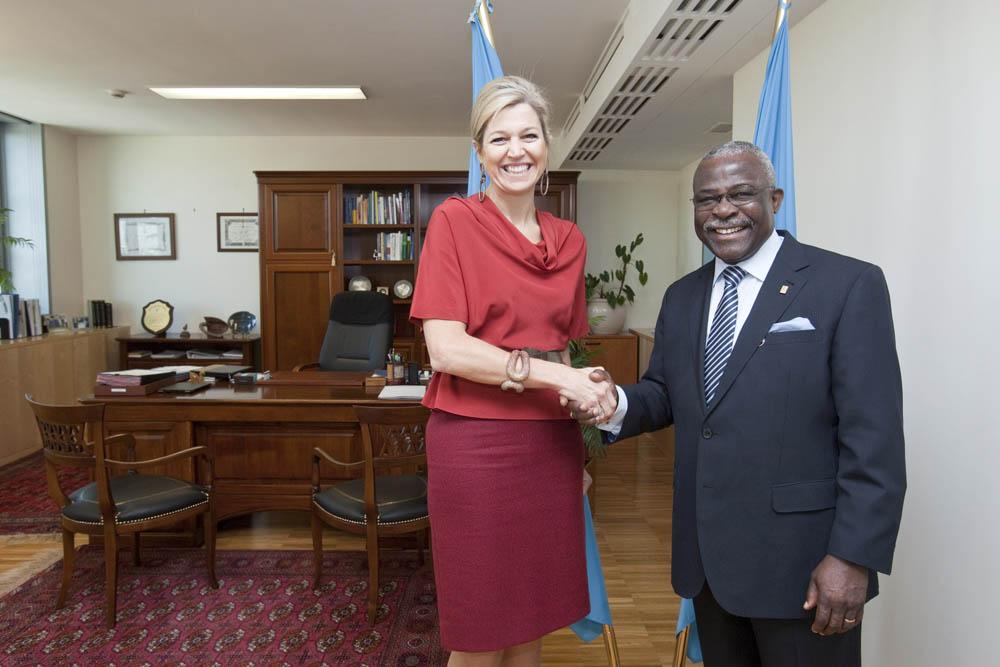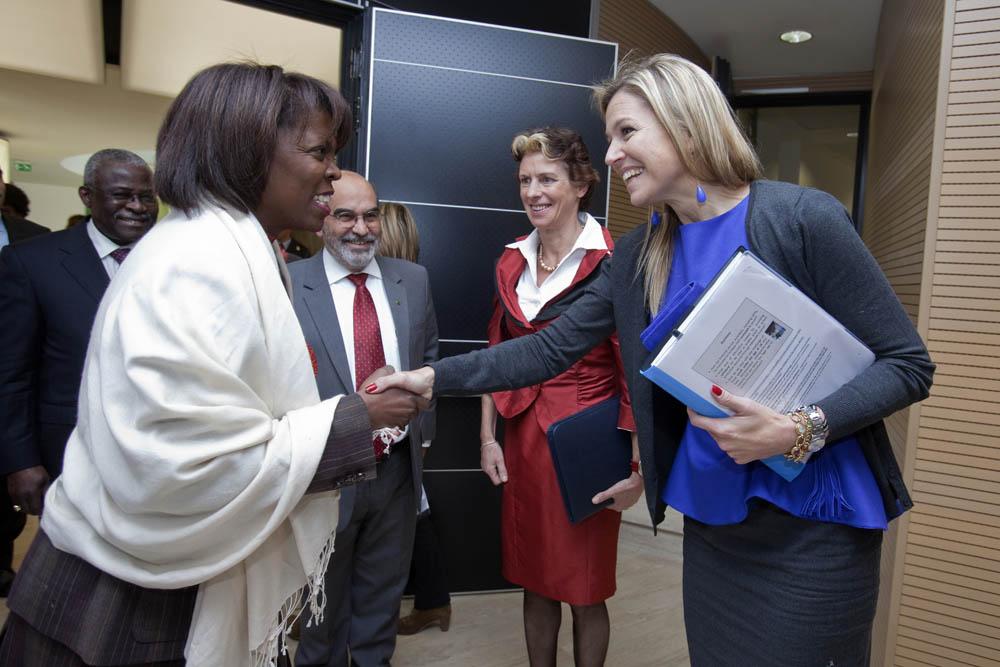Poverty remains largely a rural problem - 70 per cent of the world’s very poor people live in rural areas. They account for the majority of the world’s 1 billion people who suffer from hunger, and a large proportion of the 2.5 billion people who also go without access to the formal financial system. Many rely on subsistence level agriculture for their livelihoods, but are not able to increase quantity or quality of yields without making investments in materials, equipment, or skills.
Queen Máxima met with the senior leadership of the three Rome-based UN Agencies to discuss the linkages among ending hunger, reducing rural poverty and financial inclusion. In her meetings with Director-General José Graziano da Silva of the Food and Agriculture Organization (FAO), Executive Director Ertharin Cousin of the World Food Programme (WFP), President Kanayo Nwanze of the International Fund for Agricultural Development (IFAD), and their senior staff members, the UNSGSA discussed how financial services can increase agricultural production and yields, especially by smallholder farmers.
In a speech at a related high-level event Queen Máxima conveyed lessons from the field of finance. “We learned that people and businesses need more than just credit to thrive. They need savings, insurance, payments, and remittance facilities that are tailored to the local needs.” Savings and insurance in particular help to build resilience to shocks such as price fluctuations, bad weather or natural disasters, and help small farmers recover faster.
The UNSGSA and the Rome-based UN Agencies underscored that diverse financial services are not only necessary for agriculture, but for boosting income generating opportunities in rural areas, and importantly, for helping with the provision of and access to a wider spectrum of rural needs such as health, education, housing and more.
Overall, there was agreement on key messages and that opportunities exist to better align national strategies on agriculture and financial inclusion for the mutual advancement of both issues. The UNSGSA, WFP, IFAD and FAO are exploring further opportunities for collaboration, including through identification of best practices and joint approaches to financial inclusion and food security in particular countries.


